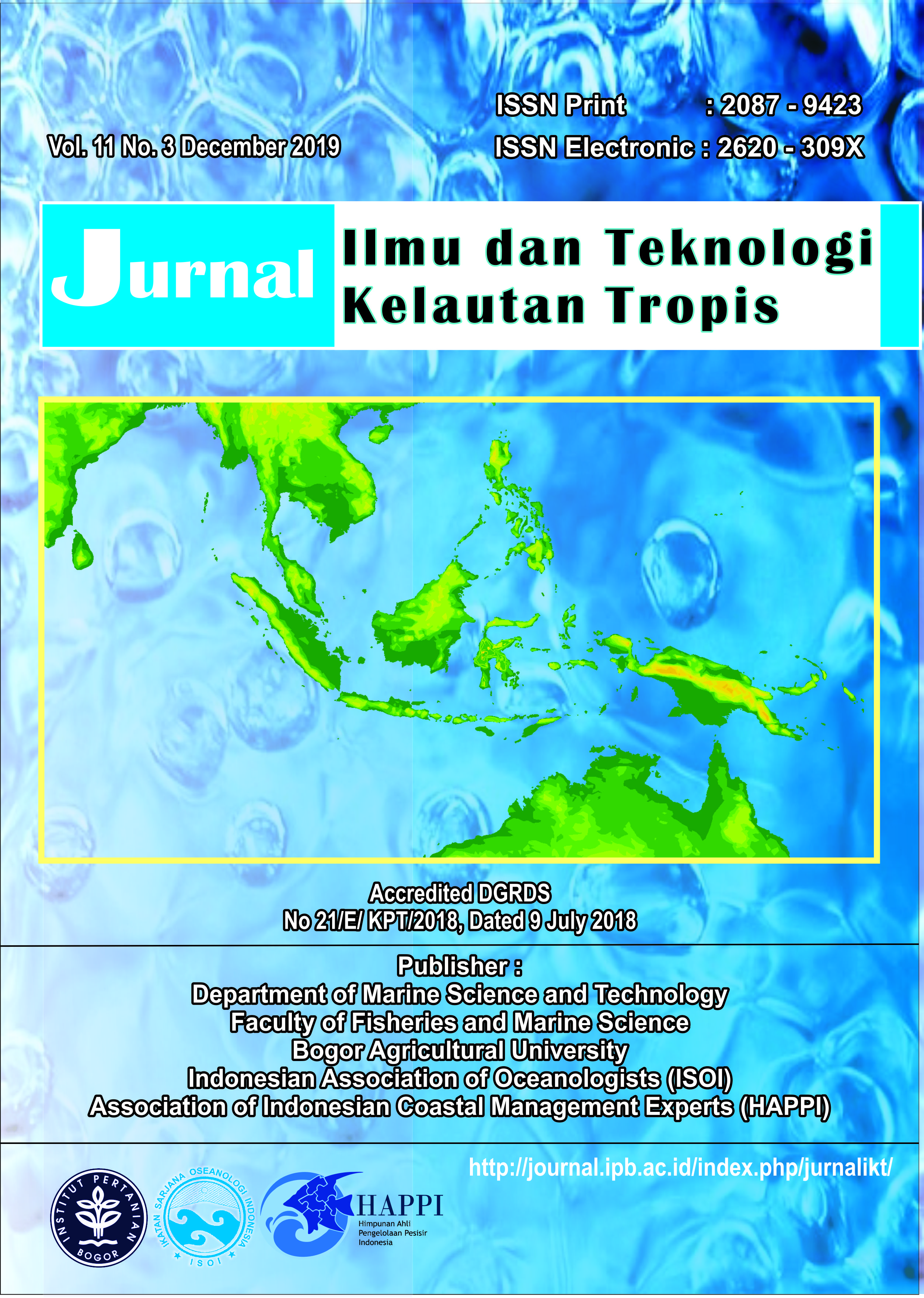PRESENT CONDITION OF MANGROVE ENVIRONMENT AND COMMUNITY STRUCTURE IN TOMINI GULF, SULAWESI, INDONESIA
Abstract
The mangroves in Tomini Gulf have been exploited for chiefly conversion of mangrove areas into shrimp cultivation and extraction of mangrove wood for various purposes. In this study, interpretation to available map and satellite images and ground check were conducted to describe intertidal environment conditions and general processes of coastal dynamic. At local scale, physiographic factors were used to classify mangrove sub-habitats. A total of 159 sample points were selected to observe structure of vegetation, and the revised two ways classification of Specht was applied to classify structural classification of vegetation. The criterion of mangrove disturbance was developed to classify disturbance level. Interview and field check were conducted to assess the successfulness of implemented rehabilitation programs. Results indicated that there were obvious changes in mangrove vegetation over much the intertidal environments, and these might influence the future development and regeneration of the mangroves. While most rehabilitation programs were unsuccessful, mangrove exploitations still continued. If a sustainable management plan is not developed, the degradation will continue and spread, and the mangrove will lose its ecological functions.
Authors
The author submitting the manuscript must understand and agree that the copyright of the article manuscript must be submitted/transferred to the Jurnal Ilmu dan Teknologi Kelautan Tropis. This work is licensed under the Creative Commons Attribution-ShareAlike 4.0 (CC BY-SA) International License in which the Author and Reader can copy and redistribute the material in any media or format, and remix, modify and build material for any purpose, but they must provide appropriate credit (citing articles or content), provide a link to the license, and indicate whether there is a change. If you mix, change, or create material, you must distribute your contribution under the same license as the original.


